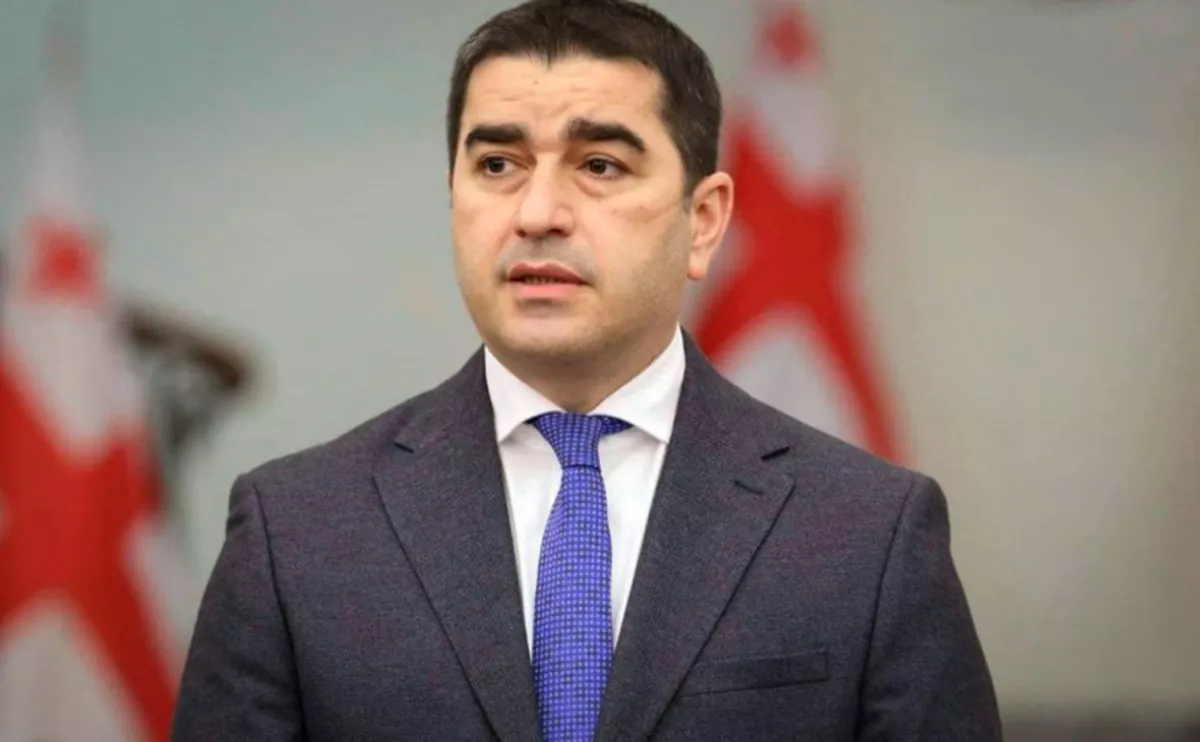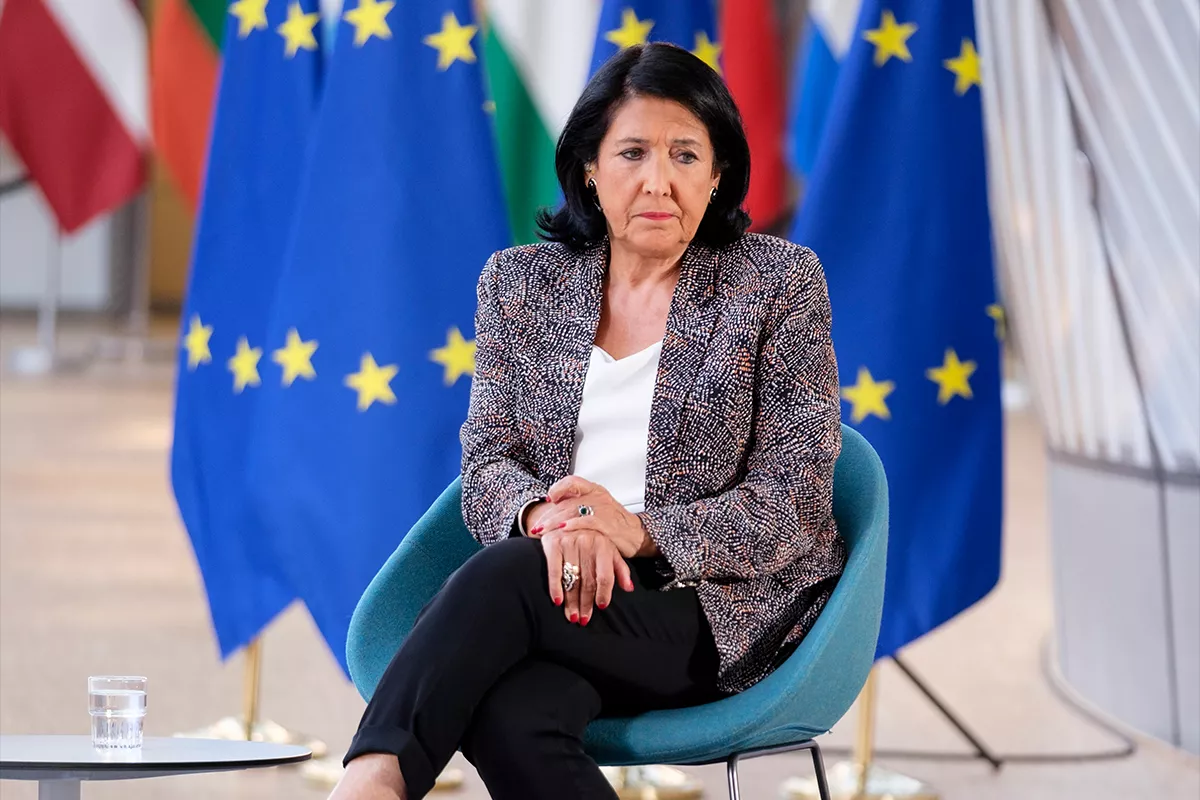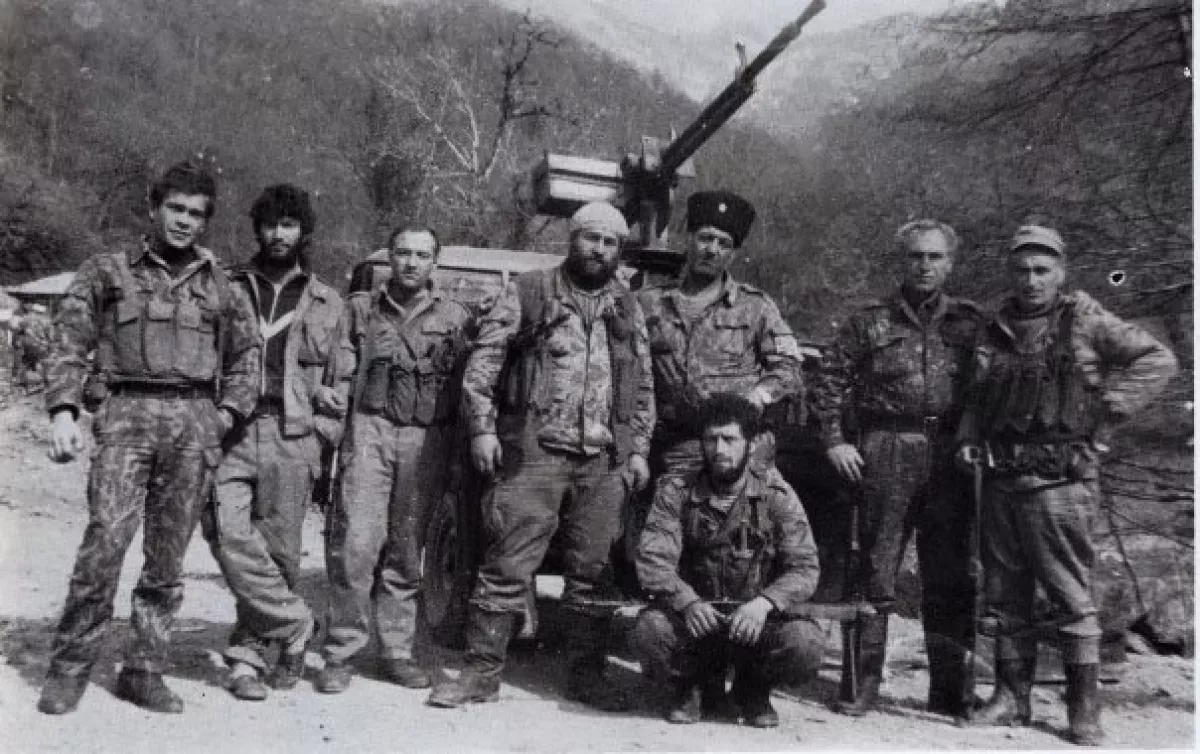Georgia rejects Western ultimatums Rule of law vs. rule of hysteria
On August 6, 2025, the Batumi City Court found Mzia Amaglobeli guilty of committing a crime under Part 1 of Article 353 of the Criminal Code of Georgia (resisting, threatening, or using violence against a public order officer or another representative of authority) for slapping the head of Batumi police, and sentenced her to two years in prison.
Mzia Amaglobeli was arrested on January 12, 2025, for her actions. Since then, Members of the European Parliament, in their resolutions, as well as the French Embassy, have repeatedly called on the Georgian government to release her immediately.
Following the announcement of the verdict, 24 diplomatic missions from various European countries, the European Union, and Canada in Georgia issued a joint statement once again demanding the release of Mzia Amaglobeli. A similar call came from the European Commission.

Speaker of the Georgian Parliament Shalva Papuashvili accused Western embassies of biased attacks against the Georgian judiciary.
“Time will pass, and ambassadors silenced by the Strasbourg Court’s decision in Mzia Amaglobeli’s case will remember how they were wrong, as they have been many times before, in assessing Georgian court verdicts.
But, as has happened many times before, none of these embassies will apologise—just as they didn’t in Saakashvili’s case, Melia’s case, Gvaramia’s case, the Rustavi 2 case, or in the parliament storming case. They haven’t apologised in any single case where these embassies were proven wrong by the European Court of Human Rights (ECHR).
Unfortunately, politically motivated slander and attacks against Georgian justice have become the signature of some EU members. Unfortunately, they have so devalued their own word,” wrote Shalva Papuashvili.
It is worth noting that from the outset, Georgian law enforcement authorities were prepared to reduce Mzia Amaglobeli’s sentence. All that was required was for the crime—an assault on a police officer—to be officially acknowledged as such. The Prosecutor’s Office even offered to formalise a plea agreement under which Amaglobeli would plead guilty and be released from pre-trial detention. However, this offer was rejected by the defendant, while the West continued to issue ultimatums demanding her immediate release.
Leaders of the Georgian opposition, including Salome Zourabichvili, actively attempted to turn Mzia Amaglobeli into a symbol of the struggle against the current government for Georgia’s "European future." In doing so, the opposition effectively signalled that it was fighting for "the right to hit police officers" and that it intended to reach the much-touted "European future" by trampling on the law.
Georgia did not give in to external pressure. Government officials have repeatedly stated that any attack on a police officer must be strictly punished within the framework of the law. However, the court's verdict was more lenient than initially expected: Amaglobeli was supposed to be tried under Part 1 of Article 353/1 (assault on a police officer), which provides for a sentence of four to seven years in prison.

Article 353 provides for more lenient sanctions: a fine, house arrest for up to two years, or imprisonment ranging from two to six years. Had Mzia Amaglobeli admitted her guilt and offered an apology, she could very well have received only a fine. But it appears that this outcome was completely unacceptable to those who, for months, had been trying to turn her into a “martyr.”
Even after the verdict was announced, the judge addressed Mzia Amaglobeli with an explanation that she could “submit a request for a presidential pardon.” However, Amaglobeli deliberately displayed her “defiance.” As she was being transferred from the Batumi court to the Rustavi prison, she wrote a message on a piece of paper and pressed it to the car window: “A slap in the face to the regime!”
Mzia Amaglobeli is the founder of two Georgian online media outlets—Batumelebi and Netgazeti—both funded by Western grants, particularly from USAID. This gave the opposition, Western embassies, and Members of the European Parliament a reason to launch a full-blown hysteria over the alleged “persecution of independent journalists” by the Georgian authorities.
However, it must be clearly understood that Mzia Amaglobeli was not prosecuted for her journalistic activities. The court’s verdict had nothing to do with her professional work. She was tried for a specific crime—physically assaulting a law enforcement officer.
If the slap she delivered to the head of Batumi’s police had gone unpunished, it could have set a dangerous precedent—impunity for violence against police officers, including high-ranking officials, in a context of political instability. This could have had catastrophic consequences for the state.
The forces preparing a “Maidan” in Georgia would have viewed such an outcome as a victory. An acquittal of Amaglobeli would have signalled that it is permissible to strike police officers, throw stones and Molotov cocktails at them, even shoot at them—and all of it would be framed not as a crime but as “heroism.” Considering that the pro-Western opposition is reportedly planning a new “Maidan-style” protest in Georgia ahead of the local elections on October 4, 2025, acquitting someone who raised a hand against a representative of lawful authority could have provoked serious unrest.

On the other hand, a harsher sentence could have turned Mzia Amaglobeli into a “martyr,” which the opposition had also been counting on. It is no coincidence that former Georgian president and “former” French citizen Salome Zourabichvili published a post on social media implying she had hoped for a stricter punishment.
“The regime is paralyzed-too cowardly to free Mzia Amaghlobeli, too weak to convict her. It hides behind delays, hoping to survive. But her strength exposed their fear. This isn’t justice. It’s a dying authoritarian system. And we won’t stop!” Zourabichvili wrote on X.
Her post clearly indicates that the opposition intends to use even the current verdict as a tool to mobilise its supporters against the legitimate government, once again repeating the false propaganda narrative of its “weakness.” However, so far, the Georgian authorities have managed to prevent a “Maidan” scenario.
At the height of last year’s protests, key riot organisers—those who planned attacks on law enforcement officers and supplied demonstrators with pyrotechnics and Molotov cocktails—were detained in targeted operations. Law and order were restored, the protests were marginalised, and most importantly, the authorities succeeded in avoiding any “sacred” victims. Such casualties were precisely what the organisers and handlers of the “pro-European revolution,” including Salome Zourabichvili, were counting on. She even went so far as to call on schoolchildren to join opposition rallies.
As for Mzia Amaglobeli’s actual journalistic work, the court proceedings had nothing to do with it. However, the article “USAID, hawk of Georgian opposition, and Armenian trace” sheds light on whose interests she was serving in her capacity as a journalist.
Beyond the usual attacks on the Georgian government typical of opposition media, the outlets under Amaglobeli’s control—particularly Netgazeti—actively promoted separatism and the redrawing of borders. This stands in stark contradiction to Georgia’s national interests, as the country has yet to restore its territorial integrity or secure the return of refugees displaced from their homes.
Mzia Amaglobeli, apparently acting on the directives of her “sponsors,” published a series of articles on Netgazeti supporting the Armenian occupation of Azerbaijani territories and backing the so-called “Artsakh” separatists.

She sought to evoke sympathy for them among Georgians, including refugees from Abkhazia and the Tskhinvali region—people who themselves suffered from separatist violence, including that perpetrated by the notorious Bagramyan Battalion.
At the height of the standoff with separatists and during the dismantling of the so-called “Artsakh” entity on Azerbaijani territory, Mzia Amaglobeli published a stream of “heart-wrenching” articles on Netgazeti about the alleged “suffering of the Armenians of Karabakh.” Yet throughout the entire existence of Batumelebi and Netgazeti, not a single article appeared about the victims of Armenian aggression—neither about displaced Azerbaijanis nor Georgians who suffered in Abkhazia and South Ossetia.
Given that support for Armenian separatists came from both USAID and France, it becomes clear whose agenda Mzia Amaglobeli was promoting. Alongside her “sponsors,” she effectively advocated turning Georgia into a disposable pawn—both in service of Western geopolitical ambitions and the aggressive revanchist plans of Armenian nationalists.
One of the objectives of the attempted “Maidan” in Georgia was the creation of a “military corridor” to Armenia—backed by France and European powers—to ignite a new war in the South Caucasus, sever transit routes, seize foreign territories once again, and carry out ethnic cleansing. To achieve this, they were willing to sacrifice Georgia’s very statehood—by undermining the country through defiance of law enforcement, the incitement of unrest, and an attempted coup.
By Vladimir Tskhvediani, Georgia – exclusively for Caliber.Az








